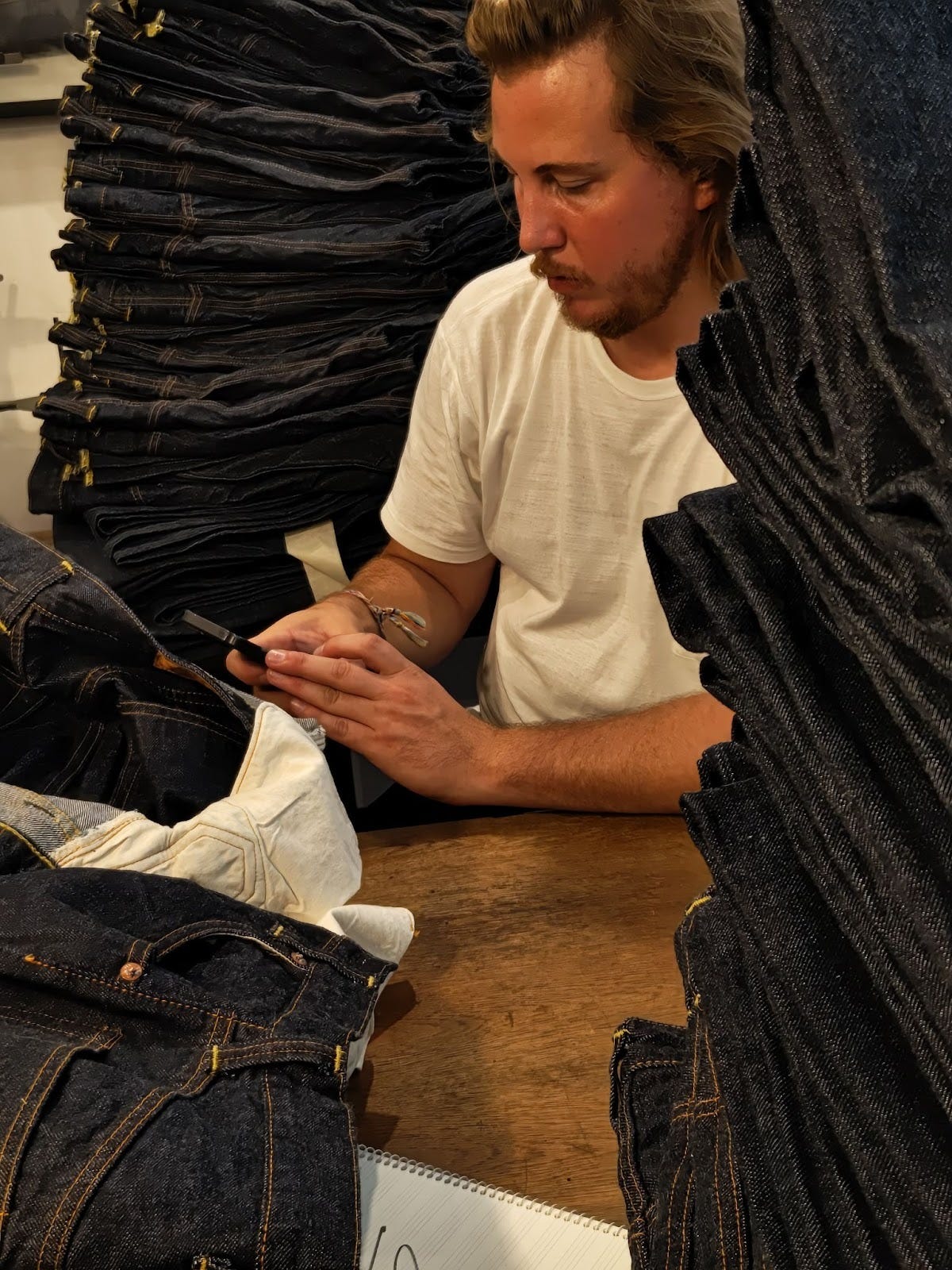Knee deep
ARTHUR LECLERC • Superstitch MFG
WORK • Friday Routine
ARTHUR LECLERC • founder • Superstitch MFG
Neighborhood you work and live in: 6th arr
It’s Friday morning. How are you rolling into the weekend?
Superstitch runs Tuesday to Saturday…
Keep reading with a 7-day free trial
Subscribe to FOUND Paris to keep reading this post and get 7 days of free access to the full post archives.


